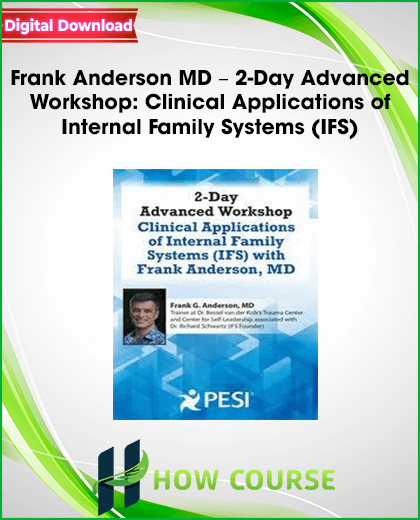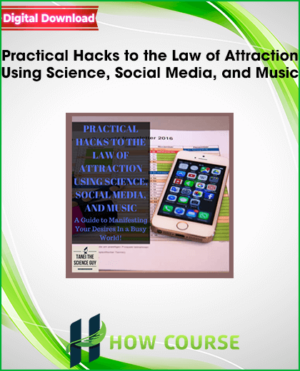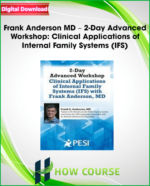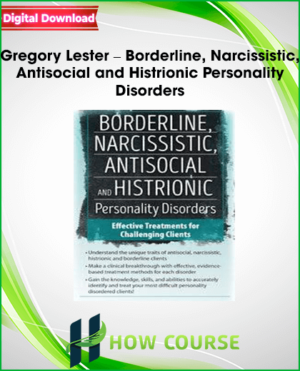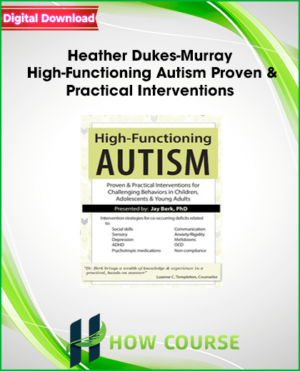Frank Anderson MD – 2-Day Advanced Workshop: Clinical Applications of Internal Family Systems (IFS)
Revolutionize your clinical approach and help your clients heal with Internal Family Systems therapy model.
IFS is one of the most popular, new, and effective treatment techniques in use today.
Thousands of clinicians already trust IFS as their go-to treatment tool to effectively heal emotional wounds so they can make greater therapeutic progress with client’s struggling with anxiety, depression, trauma, addiction and other mental health conditions.
This workshop recording is your opportunity to learn the IFS method step-by-step from Dr. Frank Anderson, one of the biggest names in the field.
Whether you are an experienced IFS therapist, a novice, or someone without any IFS training, this workshop will increase your clinical sophistication and confidence with IFS so you can treat a wide range of clients more effectively than ever before.
In this recording, you will learn the IFS method, a non-pathologizing approach to healing that is sweeping the field of mental health and beyond.
IFS expert, author, prominent clinician & psychiatrist Frank Anderson, MD, will lead you as you learn how to help clients heal from the inside out. Dr. Anderson will teach you the IFS steps that he has learned to hone his clinical work – and that have produced such transformation in his clients. He will clearly present all the tools and techniques in an easy-to-learn fashion.
Explore several different applications of the IFS Model of therapy including: trauma and attachment, depression, anxiety, psychosis, addictions, eating disorders and shame to name a few. Learn how to apply IFS when working with groups, children, parents, couples, and LGBTQ clients.
This is an experiential training that includes didactic lecture, video examples, practice, live demonstrations and meditations.
Complete this recording feeling confident to start incorporating IFS into your clinical practice! Don’t miss out on learning from one of Internal Family Systems internationally known and respected lead trainers.
This purchase is for the online CE Test and CE Certificate only. It does not include the CD/DVD, streaming or download products.
If you do not wish to take this CE Test online, please print the PDF located on Disc One of your product. Instructions
Objectives
Utilize the steps of working with client’s “protective parts” to improve treatment outcomes as proposed by the IFS model.
Differentiate between empathy and compassion as it relates the IFS approach and improving the therapeutic process.
Appraise the evidence that supports meditation as beneficial to clinical outcomes when used in the IFS process of therapy.
Explore and diagnose wounds connected to grief and loss; and describe two effective IFS interventions.
Appraise how to address the “protector” fears as they arise for the client during the therapy session.
Apply IFS methods to help trauma clients manage their overwhelming feelings.
Demonstrate how to explain to clients the neuroscience of hyperarousal in their “extreme parts”.
Demonstrate how the role of criticism and neglect from care-givers causes shame cycles in your clients and how parts-work breaks the cycle.
Apply the “triggering agreement” intervention when working with clients around resolving parenting issues that arise for them.
Demonstrate what “tracking the sequence” means as it applies to couples’ treatment.
Analyze the necessity-and create modifications-when using IFS in an inpatient setting.
Within the internal system, determine the parts of self that are associated with substance use disorders.
Assess countertransference, including recognition of potential activation of therapist’s own reactive parts.
Outline
Internal Family Systems (IFS)
Comprehensive, compassionate, nonpathologizing treatment approach
Paradigm-shifting perspective on “psychopathology”
Easily integrated into other therapeutic modalities
Teach clients to access inner wisdom and self-compassion to heal traumatic wounds
Evolution of the Model
Development of the IFS model by Richard C. Schwartz, Ph.D.
IFS as an empirically validated treatment: Summary of research support
Goals of IFS therapy
Starting an IFS session and the flow of the model
The Neuroscience of IFS
The mind and the brain
Neurons-networks and parts
Meditation and self energy
Understanding the fear response
IFS STEP-BY-STEP
Step 1: Using Meditative Processes to Identify and Connect with a Target Part
Differentiate the person from the symptom
Access a state of compassion and curiosity essential for healing
Establish a relationship with the target part
Learn the history and benevolent intention behind the symptom
Step 2: Working with Protective Parts
Facilitate internal attachment work
Learn to address the fears/concerns of protective parts
Establish a trusting relationship with proactive and reactive parts.
Resolve internal conflicts
Gain permission to proceed with healing
Step 3: Healing the Wound
Connect with the wounded part
Witness the pain rather than relive it
Retrieve the wounded part
Release/unburden thoughts, feelings and physical sensations
Life without the wound, the post healing process
Therapist Parts
Countertransference redefined
Identifying parts that get in the way
The Science of extreme reactions in therapists and clients
CLINICAL APPLICATIONS OF IFS
Trauma and Attachment
Roadblocks to healing trauma
Neurobiology of PTSD and Dissociation
Dealing with the extreme symptoms and staying in Self
Healing attachment wounds: What IFS offers
Depression and Anxiety
Differentiating feelings from symptoms
Address the biology and process the wound
Protection or genetics
Psychosis and Bipolar Disorder
Addressing psychotic parts
Differentiating psychosis from trauma dysregulation
Treating biological issues while addressing emotional pain
Substances and Addictions
Befriending addictive parts
Healing wounds or stopping use?
Addressing the biology and the behavior after healing
Eating Disorders
When food “abstinence” is not an option
Multiple eating parts
Self-led eating
Shame and Grief
The shamer and the shamed
Critical and neglect shame cycles
Loss, letting go and healing
IFS with Specific Client Populations
Children and adolescents
Parenting
Couples
Groups and inpatient settings
LGBTQ
Spirituality and culture
Author
FRANK ANDERSON, MD
Frank Anderson, MD, completed his residency and was a clinical instructor in psychiatry at Harvard Medical School. He is both a psychiatrist and psychotherapist. He specializes in the treatment of trauma and dissociation and is passionate about teaching brain-based psychotherapy and integrating current neuroscience knowledge with the IFS model of therapy.
Dr. Anderson is a lead trainer at the IFS Institute with Richard Schwartz and maintains a long affiliation with, and trains for, Bessel van der Kolk’s Trauma Center. He serves as an advisor to the International Association of Trauma Professionals (IATP) and was the former chair and director of the Foundation for Self-Leadership.
Dr. Anderson has lectured extensively on the Neurobiology of PTSD and Dissociation and wrote the chapter “Who’s Taking What” Connecting Neuroscience, Psychopharmacology and Internal Family Systems for Trauma in Internal Family Systems Therapy – New Dimensions. He co-authored a chapter on What IFS Brings to Trauma Treatment in Innovations and Elaborations in Internal Family Systems Therapy, and recently co-authored Internal Family Systems Skills Training Manual.
His most recent book, entitled Transcending Trauma: Healing Complex PTSD with Internal Family Systems was released on May 19, 2021.
Dr. Anderson maintains a private practice in Concord, MA.
Speaker Disclosures:
Financial: Dr. Frank Anderson maintains a private practice. He is the Executive Director of the Foundation for Self Leadership and has employment relationships with The Trauma Center and The Center for Self Leadership. Dr. Anderson receives royalties as a published author. He receives a speaking honorarium, recording, and book royalties from PESI, Inc. He has no relevant financial relationships with ineligible organizations.
Non-financial: Dr. Frank Anderson is a member of the New England Society Studying Trauma and Dissociation and the International Society for the Study of Trauma and Dissociation.
> Please contact our team if you have questions, or broken links via our email [email protected]

